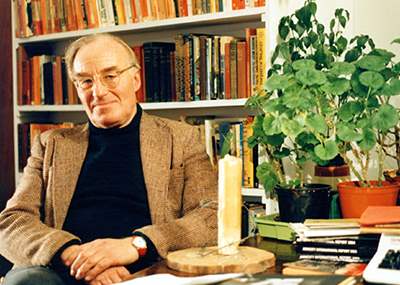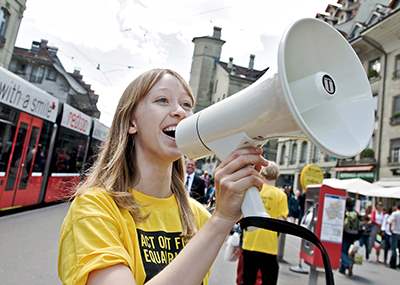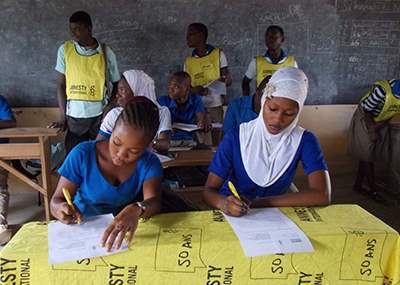Amnesty International is a global movement of more than 10 million people who take injustice personally. We are campaigning for a world where human rights are enjoyed by all.
We are funded by members and people like you. We are independent of any political ideology, economic interest or religion. No government is beyond scrutiny. No situation is beyond hope.
Few would have predicted when we started that torturers would become international outlaws. That most countries would abolish the death penalty. And seemingly untouchable dictators would be made to answer for their crimes.
BETTER TO LIGHT A CANDLE THAN CURSE THE DARKNESS
Amnesty International
WHAT DOES AMNESTY DO?
We investigate and expose the facts, whenever and wherever abuses happen.
We lobby governments, and other powerful groups such as companies. Making sure they keep their promises and respect international law.
By telling the powerful stories of the people we work with, we mobilize millions of supporters around the world to campaign for change and to stand in defence of activists on the frontline.
We support people to claim their rights through education and training.
Watch our videos below


Where it all began
In 1961, British lawyer Peter Benenson was outraged when two Portuguese students were jailed just for raising a toast to freedom. He wrote an article in The Observer newspaper and launched a campaign that provoked an incredible response. Reprinted in newspapers across the world, his call to action sparked the idea that people everywhere can unite in solidarity for justice and freedom.
This inspiring moment didn’t just give birth to an extraordinary movement, it was the start of extraordinary social change.
Only when the last prisoner of conscience has been freed, when the last torture chamber has been closed, when the United Nations Universal Declaration of Human Rights is a reality for the world’s people, will our work be done.
Peter Benenson, Amnesty International founder

Amnesty evolves
Over the years, human rights have moved from the fringes to centre stage in world affairs.
Amnesty has grown from seeking the release of political prisoners to upholding the whole spectrum of human rights. Our work protects and empowers people – from abolishing the death penalty to protecting sexual and reproductive rights, and from combatting discrimination to defending refugees and migrants’ rights. We speak out for anyone and everyone whose freedom and dignity are under threat.
AMNESTY TODAY
After more than 50 years of groundbreaking achievements, Amnesty has been through a major transformation, adapting to dramatic changes in the world.
We have shifted from a large London base, to open regional offices in cities in Africa, Asia-Pacific, Central and Eastern Europe, Latin America and the Middle East. These offices are major hubs for our investigations, campaigns and communications. The new regional offices strengthen the work of Sections who already work at the national level in more than 70 countries. We can now respond quickly to events wherever they happen, and be a powerful force for freedom and justice.
To stay one step ahead, we are also developing tools using the latest technologies. Such as a mobile phone app that acts as a personal ‘panic button’ for activists at daily risk of being arrested or detained.
Imagine what we can now achieve standing side by side with activists in every corner of the globe. How many more prison doors will open? How many more torturers will be brought to justice? How many more people will realize their rights and live in dignity?
JOIN AMNESTY. PROTECT HUMAN RIGHTS
HAVE YOUR SAY IN OUR WORK AND HELP US BE THERE FOR PEOPLE AT RISK –
BECOME A MEMBER TODAY.
Amnesty International Charity is a company registered in England & Wales, limited by guarantee (no. 02007475)
and a registered charity (no. 294230), with registered office at 1 Easton Street, London WC1X 0DW.

